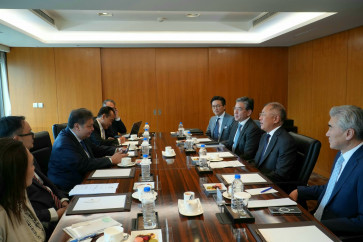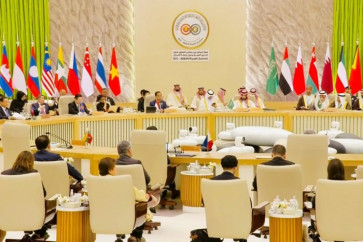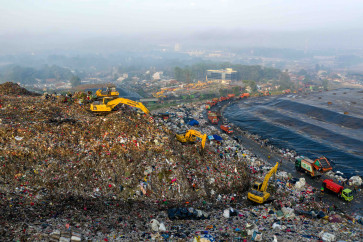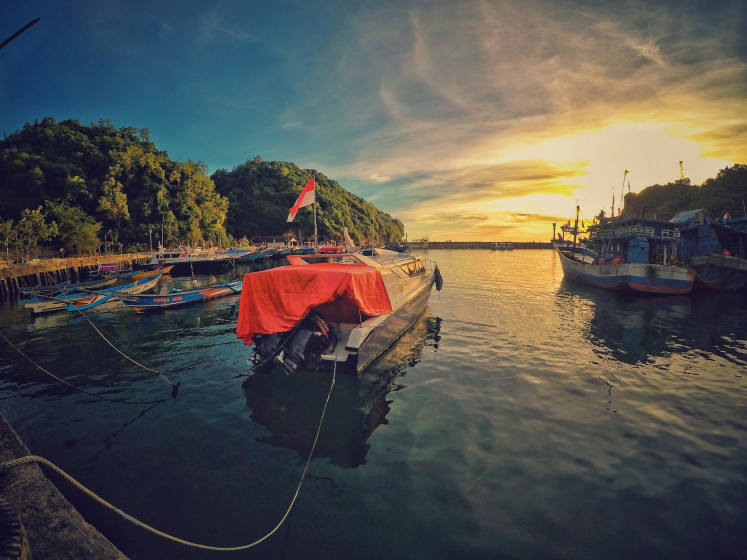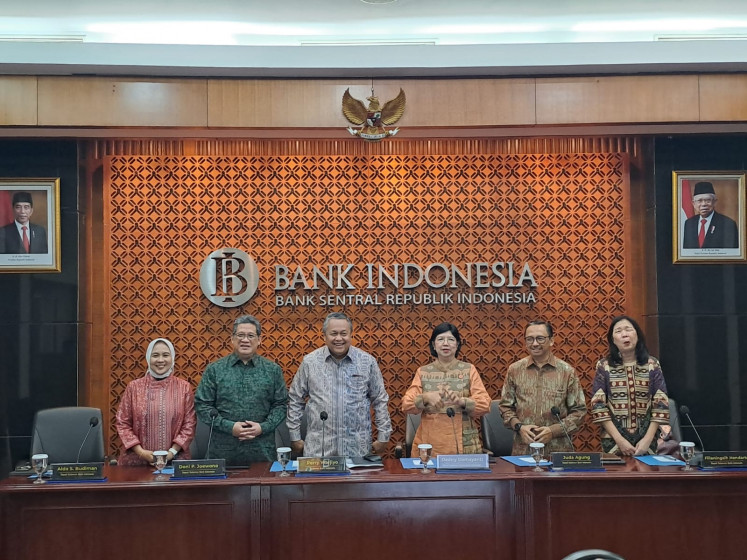Disconnected: Digital divide may jeopardize human rights
The slow pace at which Indonesia is addressing digital inequality could jeopardize basic rights for those excluded, experts have warned, especially at a time when the world relies heavily on information technology to stay connected
Change Size

T
he slow pace at which Indonesia is addressing digital inequality could jeopardize basic rights for those excluded, experts have warned, especially at a time when the world relies heavily on information technology to stay connected.
World Telecommunication and Information Society Day (WTISD) fell on Sunday, May 17, while most people in the world sheltered in place to prevent the spread of COVID-19. The disease has infected more than 4.7 million people and killed upwards of 315,000 to date.
Information technology had allowed people around the world to stay connected during the pandemic and “these connections are more important than ever”, said United Nations Secretary-General António Guterres in his message to mark the occasion.
“World Telecommunication and Information Society Day reminds us that international cooperation on digital technology is essential to help defeat COVID-19 and achieve the 2030 Agenda for Sustainable Development,” he said in a statement on the UN website.
In Indonesia, the rapid rate of internet penetration over the last two decades has yet to benefit the majority of the population, owing to inequitable access to information technology in rural and remote areas of the country.
According to both the 2020 Inclusive Internet Index of the Economist Intelligence Unit (EIU) and the Network Readiness Index 2019 of the Portulans Institute, Indonesia trails behind most of its neighbors in inclusive access to the internet.
“This populous Southeast Asian country experiences considerable difficulties in supporting internet inclusion in every area of the index except for trust and safety,” says the EIU report. “Indonesia struggles, for example, to ensure affordability of mobile and fixed broadband data, and local content availability leaves much to be desired.”
This digital divide has so far impeded the government’s COVID-19 social assistance programs that rely heavily on online platforms to deliver relief to those in need. It has also weighed down schools under the social restrictions that has expected schools to shift to online learning with little to no digital preparation.
“[Efforts to increase access] should not simply be about ratcheting up digital industry growth. It should also be about giving the public access to what is already available. Because the internet is an enabler that opens up opportunities, it is important to ensure that [wide] access is available,” said Institute for Policy Research and Advocacy deputy research director Wahyudi Djafar.
A number of reports illustrate Indonesia’s digital divide. A 2018 survey by the Association of Indonesian Internet Service Providers, for instance, showed that the most populous island of Java contributed over half of internet usage in the country, with most users living in urban areas.
But Indonesia is not alone in the digital divide.
International Telecommunication Union secretary-general Houlin Zhao said in a video message on Feb. 25 that almost half of the world’s population was still not using the Internet, while overall connectivity growth in information and communications technology was slowing.
“Time is pressing,” he said. “We need to coordinate and redouble our efforts to connect everyone to the global digital economy, and for those connected, more must be done to ensure that connected life is safe and trustworthy.”
The Indonesian government has sought to provide 4G services through the Palapa Ring broadband project, a 35,000-kilometer nationwide fiber optic network that was completed last year.
“The Palapa Ring will hopefully be able to bring justice to all Indonesian citizens, from Sabang to Merauke, from Miangas to Rote, and allow them to have equal opportunity to access advanced technologies and high-speed connectivity,” President Joko “Jokowi” Widodo said during the project’s launch in October 2019.
In the past, authorities have used the universal service obligation funds collected from telecommunication operators to expand internet access through programs like Desa Berdering (Ringing Villages) and district mobile internet service centers (M-PLIK).

